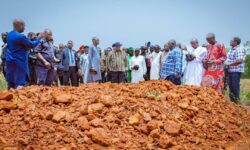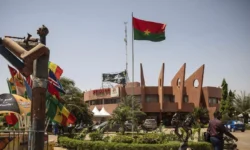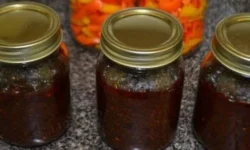Daily Life in Ethiopia’s Western Hararghe Region: Misra’s Story of Resilience
Daily life in Ethiopia’s Western Hararghe region is filled with challenges. Home to both the Oromo and Somali communities, the area is frequently affected by ethnic conflicts and tensions. In 2020, a surge in violence forced many residents to flee their homes, adding to the already rising population of internally displaced persons (IDPs). One such individual was Misra, who sought safety in Meisso, a town near Ethiopia’s Somali border.
While Meisso offered relative security, its harsh climate and lack of economic opportunities made survival a constant struggle. To provide for her family, Misra turned to smuggling textiles for traders in Meisso, a dangerous and poorly paid job that barely met her family’s basic needs.
“We earned very little, maybe 100 birr (less than £1) for each piece of fabric,” Misra shared. “But it was the only way we could survive.”
The risks of smuggling were particularly high for women. Misra often ventured into perilous areas, exposing herself to violence or the risk of being caught by security forces targeting smugglers. In one heart-wrenching incident, a security officer confiscated her textiles, leaving her in a dangerous situation. Returning empty-handed meant facing retaliation from the traders she supplied, while challenging the officer could result in imprisonment due to the constant threat of gender-based violence.
“I had no other choice,” Misra recalled. “I begged the guards, and in the end, I paid them twice what I had earned to avoid being beaten or thrown in jail.”
For women like Misra, such impossible decisions are a daily reality. Conflict and displacement often leave them vulnerable to exploitation and poverty, making stability almost unattainable. For many, peace and economic security remain distant dreams.
However, according to Islamic Relief, Misra’s situation improved after receiving support through the Resilient Solutions for Internally Displaced Persons and Communities project. This initiative helped Misra and other displaced women start small businesses. With the resources and training provided, Misra was able to open a small store, now supporting her family and offering hope for the future.
“For the first time, I don’t have to risk my life to earn money,” she said. “Our shop is small, but it’s enough to support us.”
Islamic Relief emphasizes the importance of empowering vulnerable women, especially those affected by conflict and displacement. Through these programs, women like Misra can achieve financial independence and rebuild their lives with dignity.
Misra’s journey from displaced woman to successful entrepreneur highlights the resilience of women living in conflict zones. Her story is a powerful reminder of their determination to overcome adversity for the sake of their families.
As part of the United Nations-led 16 Days of Activism Against Gender-Based Violence campaign, Islamic Relief calls for actionable change to support women like Misra. This year’s campaign theme, Broken Promises, underscores the importance of fulfilling commitments made to vulnerable women. Misra’s success story demonstrates the transformative power of meaningful support and advocacy for gender equality worldwide.

















